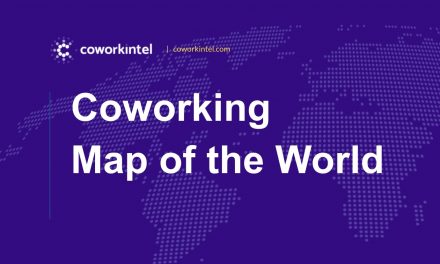Shifting sands are upon business professionals in the marketplace of today. The United States enjoyed a period of incredible economic growth up through early 2020. The expansion and rapid scaling of companies poured into the job market, and the opportunities-to-talent ratio created a strong candidate and employee-driven field.
Following the responses to COVID-19, the market began its shift. However, this time, there seems to be a candidate shift that has created tension in the pendulum swing, causing new pain points that both businesses and individuals must learn to navigate together. Employees and employers have a new Goliath facing them in the form of aligning approach, effectiveness, and security.
Harmony is a fading concept in the divides of today, but a unified approach from both sides of the economic engine is necessary to effect a mutually beneficial solution.
Key Considerations
Layoffs have been trending in the years following 2020, creating an unsettled marketplace where employers focus on retention and development, while employees have grown in their desire for flexibility and autonomy and become increasingly uncertain about making a commitment to any employer.
Gallup polls have shown that loyalty is waning on both sides, and the focus of many Generation Z candidates, in particular, is on flexibility and autonomy, pushing them into the freelance work arena.
Wisdom’s lens looks beyond individual wants to productive and professional solutions that offer a prosperous result. 2020 leveled the field and uprooted normalcy for both employers and employees, and both parties have endured an incredible impact. For the years following, remote work, layoffs, and a market shift – which has raised the level of competition through fewer employment offerings – calls on everyone in the marketplace to pay attention to and navigate the interests on both sides, and reach a winning strategy.

Opportunities to Magnify Hope
– Flexibility
Flexibility has grown to be such a powerful attractor for many candidates in the market today. A push toward it is being adopted as the new norm. Companies that were able to accommodate the work-from-home adjustment in 2020 are called upon to make it a permanent adjustment.
For employees, this helps them manage personal responsibilities and desires while still participating in the economic growth and benefit in our communities. For companies, with the ability to meet this uncompromising ask, it could be the differentiator in attracting talent and a contributing factor in employee retention.
The important equalizer here is that it has to work on both sides. For-profit companies must remain vibrant and productive through the transition to remote or hybrid, and for employees, they have to be fit for that new environment. The key factor is communicating and negotiating the value and goals needing to be achieved. Relevant performance metrics that are clearly communicated, managed, and met or exceeded will remain vital to any flexible, non-traditional arrangement. If both parties understand, agree to, and are committed to the mutual investment from each side, then the success that follows is a reward of that effort.
– Autonomy
Autonomy is one factor that Gallup identified through its polling of Gen Zers as critical. Their desire for autonomy can certainly play into the work-from-home argument with great synergy. Their ability to show their self-discipline and work ethic independently is important to them.
That said, the key metrics mentioned previously provide the evidence of whether someone is meeting the level of performance expected and necessary to continue on a special or flexible schedule. This autonomy also aligns with the growing interest in many candidates to pursue freelance work instead of the traditional employer-reliant route.
This freelance approach offers the freedom and decision-making power independent to them. The downside is that there are misconceptions about what a freelancer means and whether your field of work qualifies at a local, state, and federal level as a true independent contractor, which many people are unaware of, needing to possess knowledge in a specialized field, as an example. The cost of employment is high, so qualified independent contractor arrangements could be attractive to some businesses; however, there is often a level of risk due to the lack of education from a financial and compliance perspective.
Freelancers also incur the burden of health and wellness costs, along with retirement and professional development. The security fears that came from the continual wave of layoffs aren’t mitigated in a freelance world, because it is dependent on other companies to offer employment opportunities on a more project basis, which could be a shift to their internal hiring strategy.
As with all good things, the opportunity to freelance must be an educated approach and is not ideal for all candidates, nor is it for all companies (especially those invested in engagement and culture).
– Trust
There is no question that layoffs and a cooling job market have contributed to the lack of trust that candidates and employees have for employers as a whole. Caution should be used on the over-hiring opinions that have been formed, as broad brushes diminish trust in general, and as unique as each person is, so are different companies, and even teams within large corporations.
Employers, too, have experienced diminished trust in their employees. In the prior candidate-driven market, employers experienced diminished loyalty in the quest for dollars and new opportunities and hot market attractions. Retention became a problem, and now they hire with a more cautious lens, with a desire for better long-term success.

Opportunity for the Win
As we move forward together in this new economic stage of both contraction and future expansion and growth, the frame so desperately needs to be widened to include both parties in partnership with equal weight and balance. Prosperity in harmony together is greater than individual interests (either as a collective employer body or an individual person/people group).
Whether facing opportunities and challenges involving shortened work weeks, flexible hours, and/or remote work demands, intentional assessment and communication of the pros/cons to any adaptation or change is important. The onus is upon both parties to understand and engage in contributing to a solution.
The art of using wisdom over want is essential for meaningful progress for both employers and employees. It is the catalyst to encouraging a thoughtful balance of prosperity for businesses and for individuals. Both parties must be willing to distinguish between their wants and the wisdom of compromise, as well as distinguishing responsibility along the right lines over mere desires.
Wisdom’s lead in the want will embrace a well-suited approach that is effective and builds back trust and security that is currently lacking. This creates a mutually beneficial path forward, a winning lens.








